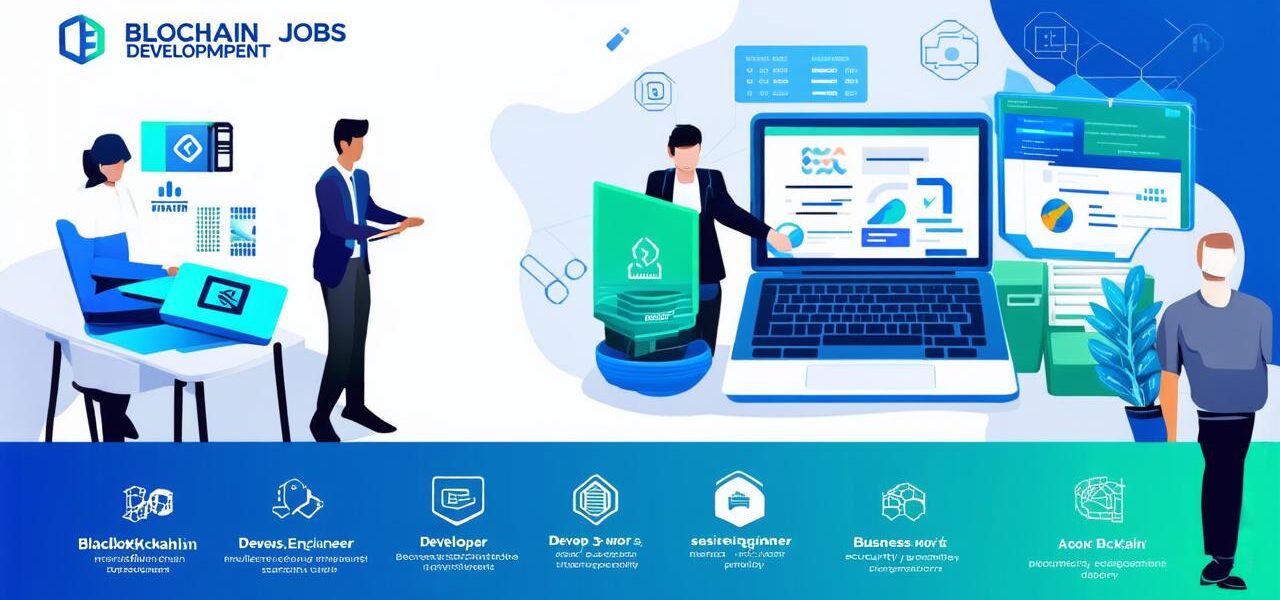
Unlocking Profits: Exploring Ways to Earn Through Blockchain Development
Blockchain technology has been around for nearly a decade and its potential is limitless. Many people associate blockchain with Bitcoin, but it’s much more than that. It’s a decentralized database that securely records transactions in an immutable way. In this article, we will explore ways to earn through blockchain development, including the various jobs available in the field and the applications of blockchain technology that can generate revenue.
What are Blockchain Development Jobs?
Blockchain development is a rapidly growing field. According to LinkedIn’s 2019 Emerging Jobs Report, blockchain developer was the most in-demand job of the year. Here are some common blockchain development jobs:
- Blockchain Developer: Responsible for designing, developing, and maintaining blockchain applications. They work with smart contracts and ensure the security of the network.
- DevOps Engineer: Responsible for deploying and managing blockchain applications. They work closely with developers to ensure a smooth deployment process.
- Security Analyst: Responsible for securing the blockchain network. They identify vulnerabilities and implement security measures to protect the network from attacks.
- Business Analyst: Responsible for understanding business requirements and translating them into blockchain solutions. They work closely with stakeholders to ensure a successful implementation.
Blockchain development is an interdisciplinary field that requires skills in computer science, mathematics, cryptography, and business. Blockchain developers need to be proficient in programming languages such as Solidity, Java, Python, and JavaScript. They should also have knowledge of blockchain platforms like Ethereum, Hyperledger, and Corda. Additionally, they need to understand the security implications of blockchain technology and how to implement robust security measures.
How Blockchain Development Can Generate Revenue
Blockchain technology has several applications that can generate revenue. Here are some examples:
- Smart Contracts: Smart contracts are self-executing contracts written in code. They can automate various tasks, such as payments, supply chain management, and voting systems. Smart contracts are a key component of blockchain technology and have the potential to generate significant revenue.
- Decentralized Applications (dApps): Decentralized applications (dApps) are blockchain-based applications that run without the need for a central authority. They can be used for various purposes, such as social media, gaming, and e-commerce. dApps have the potential to generate revenue through advertising, transaction fees, and in-app purchases.
- Supply Chain Management: Blockchain technology has the potential to revolutionize supply chain management. It provides a secure and transparent way to track products throughout the supply chain. Companies can use blockchain technology to improve supply chain efficiency, reduce costs, and increase transparency. This can lead to increased revenue and profitability.
- Voting Systems: Blockchain technology has the potential to improve voting systems by providing transparency, security, and accessibility. Blockchain-based voting systems can ensure that votes are counted accurately and securely, without the need for intermediaries. This can increase voter trust and participation.
- Gaming Industry: Blockchain technology has also disrupted the gaming industry by enabling new forms of gaming and revenue models. Blockchain games like CryptoKitties, Axie Infinity, and Dfinity have generated significant revenue through unique features such as non-fungible tokens (NFTs), in-game marketplaces, and play-to-earn mechanisms. These games have provided new opportunities for gamers to earn rewards and own digital assets, which has increased their engagement and loyalty.
Successful Blockchain Development Projects
Successful blockchain development projects demonstrate the potential of blockchain technology and inspire others to adopt it. Here are some examples:
- Ethereum: Ethereum is the most popular blockchain platform for building decentralized applications (dApps). It has a large community of developers and users, which has contributed to its growth and success. Ethereum has generated significant revenue through various applications such as DeFi, gaming, and supply chain management.
- IBM Food Trust: IBM Food Trust is a blockchain-based system that enables food manufacturers, retailers, and regulators to track food products throughout the supply chain. It uses smart contracts to automate various tasks such as traceability, quality control, and compliance.
- Cisco Webex: Cisco Webex is a blockchain-based platform that enables secure and scalable video conferencing and collaboration. It uses smart contracts to automate various tasks such as identity verification, payment processing, and data sharing.
Best Practices for Blockchain Development

Best practices are essential for successful blockchain development. Here are some best practices to consider:
- Security: Security is a critical consideration in blockchain development. Developers should use secure coding practices and implement robust security measures such as multi-factor authentication, access controls, and encryption. They should also conduct regular security audits and penetration testing to identify vulnerabilities and address them promptly.
- Scalability: Scalability is another important consideration in blockchain development. Blockchain networks can become slow and expensive to operate as they grow. Developers should design their networks with scalability in mind and use sharding techniques to distribute data across multiple nodes. They should also consider using off-chain solutions such as sidechains or state channels to improve performance and reduce costs.
- Interoperability: Interoperability is the ability of different blockchain networks to work together. Developers should design their networks to be interoperable with other networks and standards, such as IPFS and Ethereum. This can improve the overall ecosystem and increase adoption by enabling seamless integration with existing systems and services.
Summary
Blockchain technology has the potential to revolutionize many industries and generate significant revenue. Blockchain development jobs are in high demand and will continue to grow in the future. Smart contracts, dApps, supply chain management, voting systems, gaming industry, and other applications of blockchain technology demonstrate its versatility and potential. Successful blockchain development projects such as Ethereum, IBM Food Trust, and Cisco Webex inspire others to adopt it. Best practices such as security, scalability, and interoperability are essential for successful blockchain development. The future of blockchain technology is bright and full of opportunity.



